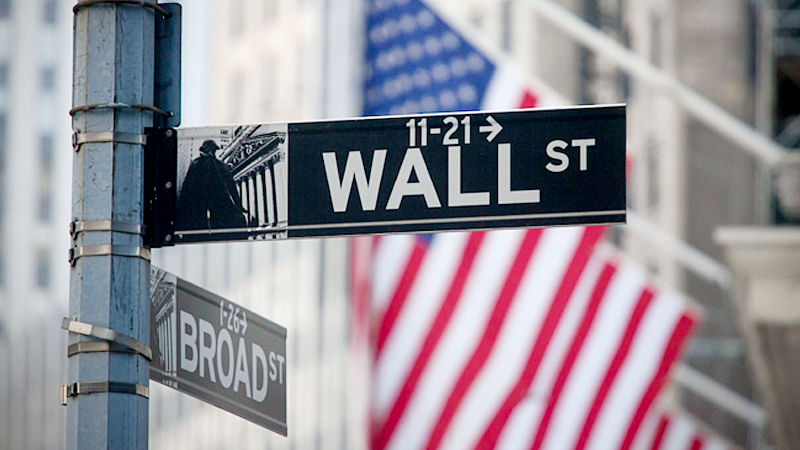Dow surges a second day as manufacturing data, strong earnings offset coronavirus fears

Global markets were in recovery mode Tuesday following last week's coronavirus-fueled sell-off, with the Dow Jones industrial average climbing 470 points.
The virus responsible for 427 deaths and more than 20,400 infections has weighed heavily on investors who fear it will have a chilling effect on the global economy and throw a wrench into the supply chains of some of the world's most powerful companies. But manufacturing data in recent days showing the United States had emerged from a five-month contraction in January and that global output had been recovering from an extended, pre-virus slowdown assuaged some concerns.
"Manufacturing was one of the tea leaves arguing the U.S. economy was sliding toward recession, and now that company executives are more bullish about the 2020 outlook, the word recession needs to be banished by stock market investors permanently," Chris Rupkey, chief financial economist at MUFG Union Bank, wrote in a note to investors Monday.
At the close of markets Tuesday, the Dow was trading up nearly 1.4%. Standard & Poor's 500 had gained 1.5% and tech-heavy Nasdaq had bounced nearly 2.1%. The Shanghai Composite index, which shed 8% Monday in its first day of trading since the Lunar New Year, rebounded and closed with a 1.3% gain after the People's Bank of China injected liquidity to support the market for the second day in a row. China-exposed companies whose stocks took a beating last week saw their shares rise, with Apple climbing 2.7%, Delta up 3.3% and American Airlines up 5%.
Oil prices, which sunk to a one-year low beneath $50 a barrel Monday, were mixed Tuesday. Brent crude closed at $53.87, and West Texas Intermediate closed at $49.46. The virus has all but halted travel in China, the world's leading oil consumer, and prompted air carriers and tourism companies to announce widespread cancellations. Gold, a safe-haven for investors in turbulent times, was down 1.6%.
Strong fourth-quarter earnings from giants such as Amazon, Apple, Tesla and Coca-Cola have also sparked positive sentiment in recent days. But Google parent Alphabet saw its shares plummet in early trading after the company reported income and revenue misses thanks to weak performance in its advertising business. Ford reported that it lost $1.6 billion in the fourth quarter, and shares plunged in after-hours trading.
Despite the turnaround, storm clouds lie ahead. Experts having been using the 2003 SARS outbreak to gauge the potential fallout from the coronavirus on global growth, and a 2004 study from The Brookings Institution, Korea University and the Australian National University estimated that the outbreak delivered a $40 billion hit to the global economy; that would amount to about $56 billion today, adjusting for inflation. But the stakes are far higher now, as China is now one of the world's most vital economic engines: its GDP is roughly $13 trillion, compared with $1.6 trillion during the SARS outbreak. Even if the virus is contained quickly, economists are predicting China's growth rate will fall to between 3 and 4% this quarter.
"While I fully acknowledge the strong earnings and data from the United States, indeed pre Wuhan crisis, I fully expected the U.S. to continue to outperform the rest of the developed world," Jeffrey Halley, an analyst with OANDA, wrote in commentary Tuesday. "Those earnings and data points though are backwards facing, and the potential impact of the Wuhan virus is nowhere near yet being able to be fully quantified in its implications for global growth."
At a Bipartisan Policy Center event Tuesday, former Federal Reserve chair Janet Yellen said that, while past epidemics such as SARS delivered a short-term economic blow that then faded, it's unclear whether that will be the case with the coronavirus.
"China is such a significant piece of the global economy that it's bound to have spillover effects," she said.
The outbreak comes at a pivotal moment, when the global economy was expected to rebound thanks to the trade truce between the United States and China. The outbreak has forced Starbucks to close half its stores in China, while McDonald's, KFC, Ikea and Apple have also announced closures. Delta, United and American joined a large group of European air carriers in suspending service to China, and casinos in Macao - the world's largest gambling market - are closing their doors for two weeks.
Hyundai became the first global automaker to suspend operations because of the virus Tuesday. The South Korean auto giant said it would be forced to stop factory production in the country because China's shuttered factories spawned a components shortage. Its shares closed down more than 7.2%.





